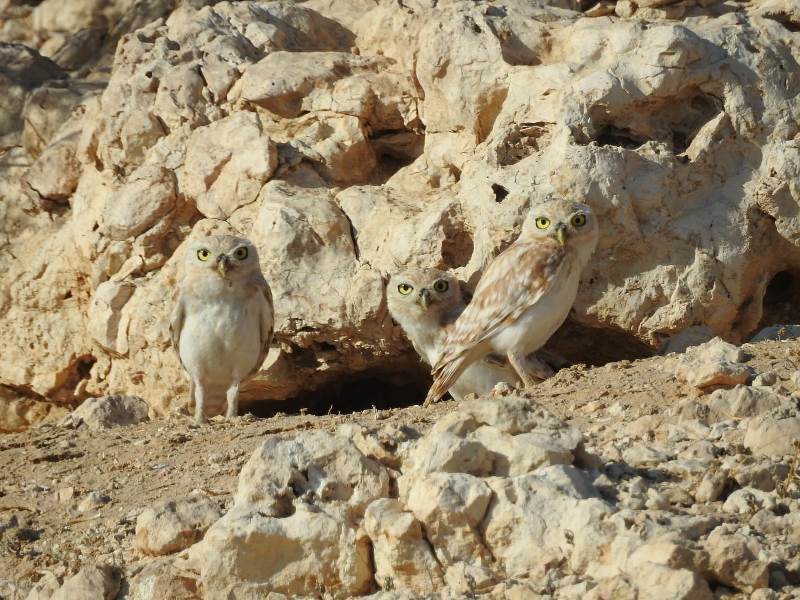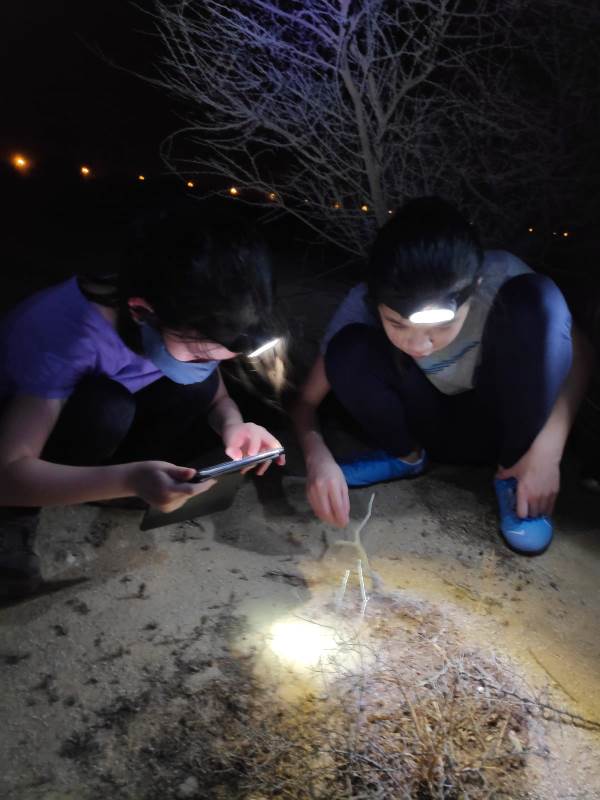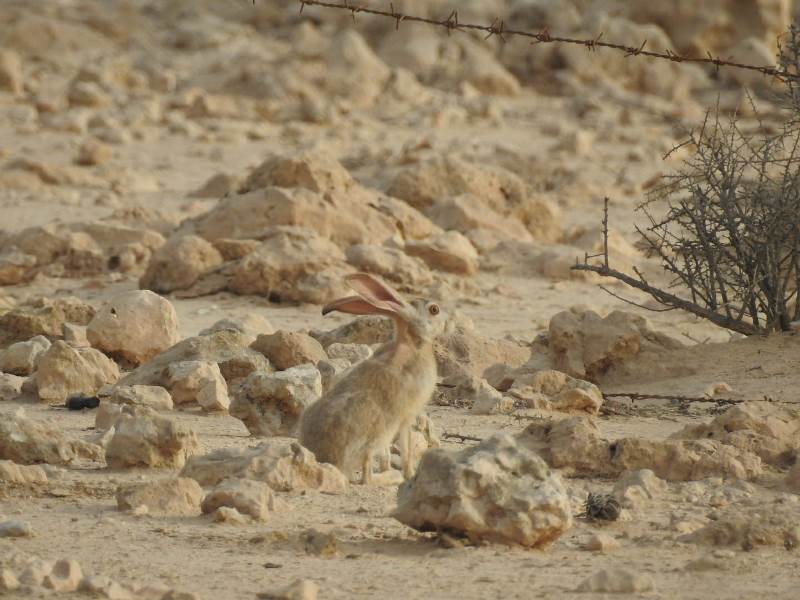
QNHG members on one of their trips
Doha: When Leaf-nosed snake (Lytorhynchus Diadema) and a sea slug belonging to the Chromodoris species, were first spotted in Qatar, playing a key role in their documentation were the members of a 40-year-old volunteer group Qatar Natural History Group (QNHG).
An active, and probably the oldest volunteer group in Qatar, QNHG brings together people with a curious mind about the natural environment of the country.
The group offers insight into the culture, history, nature, and archaeology of the country by frequently organising talks and field trips that include nature walk, birdwatching, astronomy, archaeological rambles, etc.
Founded in 1978, QNHG activities take place from October to June, the time when the country experiences the best weather outdoors.

Chairman of the group Dr Thierry Lesales said he learned about the group online, before moving to Qatar six years back, and started volunteering as soon as he was in the country. "We’re always curious about the environment, and during our outings, we are eager to learn more about every species that we can observe. Some QNHG members have made some interesting contributions to recording Qatar’s fauna and flora. For instance, in 1999, we had the first recording of the Leaf-nosed snake, Lytorhynchus Diadema, and in 2007, the discovery of a sea slug, belonging to the Chromodoris species."
"Throughout its activities, and over the years, I believe the group has allowed generations of expats and Qataris to have a better understanding of the rich natural and historical heritage of the peninsula. Experts and scientists deliver presentations based on the latest knowledge on a specific topic. So, it’s always interesting to learn about the recent discoveries on a species or the results of new archaeological digs," he adds.
The group had busy sessions in August and September with bird watching, walks in the desert, and stargazing events all with social distancing in place.

In the coming months, it has planned a mix of birdwatching, walks in the desert, winter camping, desert driving workshop and stargazing events. Due to Covid-19, most of the outdoor events will be restricted to a limited number of people, Dr Lesales said.
Apart from learning and gaining knowledge, the group members have contributed to society through their Citizen Science Project.
"We invite community members to participate in this programme by sharing pictures of animals, birds or even lizards that they spot outdoors to map the flora and fauna of Qatari desert, which is then added to our database and shared with research organisations," Dr Lesales, who holds a doctorate degree in geography, told The Peninsula.

Run by volunteers who undertake various responsibilities, QNHG has about 200 members, of whom many are avid bird watchers and almost all of them are nature lovers.
While the talks are free and open to the public, the rambles and other activities are for members only, who pay an annual fee of QR75 per adult and QR150 per family that helps to pay for administrative expenses.
QNHG committee members are now busy streamlining their membership and fee payment online to ensure smooth processing, while also charting out a safe and active season for its members.




